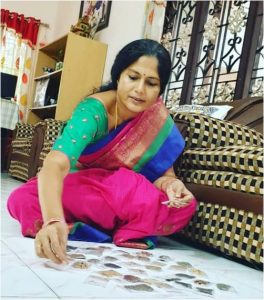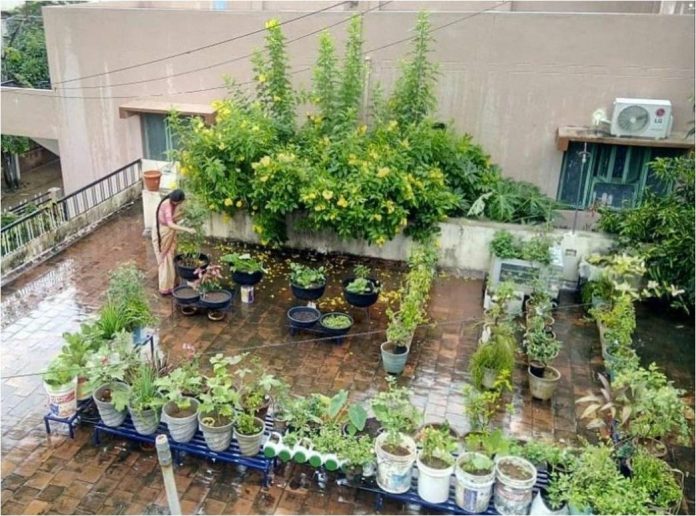Let the word ‘farming’ in urban farming not fool you. The practice does not include hours of toil, large patches of land or heavy-duty equipment. Starting your own vegetable garden can be very simple.
Urban farming is a practice implemented in densely populated urban areas, so people who have taken up urban farming have, over the years, innovated and adapted the practice to suit the urban environment.
One such urban farmer is Padma (Instagram: @padma.maanthini) from Tirupati, Andhra Pradesh — a homemaker who is starting her own business. Padma told us about her experience creating her own vegetable garden.

The first step is figuring out what kind of plants you wish to grow in your garden. In Padma’s case, she had always been fascinated with the idea of growing her own produce. So, when the pandemic hit and she had more time on her hands, she decided to put the idea into action.
When Padma started out, her plan was to have a simple setup where she grew essential vegetables. Repurposing simple plastic containers and using iron stands, she grows leafy vegetables, tomato, chilli, carrot and cauliflower. Soon after, she was able to expand her setup to include fruits like papaya, mango, custard apple and fig.

Thereafter, you need to plan the layout of your garden. A planned garden layout gives a sense of discipline and mental peace. It helps you think more creatively and makes taking care of the plants easier as they are in a structured design. For her garden, Padma used a colony structure as it makes watering and re-potting the plants easier.
When taking care of your plants there are some things that you need to keep in mind, Padma says. Using heirloom seeds makes a great difference in the quality of your produce. (Heirloom seeds come from open-pollinated plants that pass on similar characteristics and traits from the parent plant to the child plant, and are typically saved and handed down through multiple generations of families.) Second, ensure that your soil is fresh and the plants are not decomposing in it. Thirdly, create a proper drainage system for your plants.
Padma also cautions that, as plants in terrace gardens are restricted to pots and don’t have adequate access to the natural resources they need, they tend to die if they are not cared for. You need to maintain a regular supply of nutrients and pest control.
When she faces issues or needs help, Padma looks to YouTube videos and fellow ‘Insta-growers’ (Growers of Instagram).
For Padma, urban farming has been a rewarding hobby. She loves seeing and talking to her plants. The only downside is that she can no longer take vacations because she feels no one will look after her plants the way she does!





